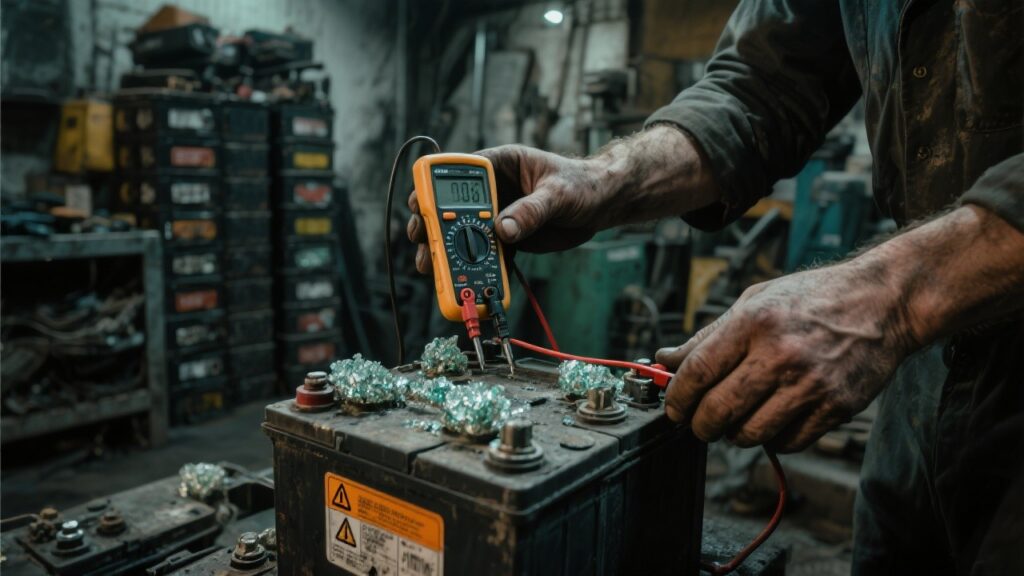Few things are as frustrating as rushing out the door, turning the key, and hearing nothing but a sluggish crank. A car battery that is on its last leg rarely fails without giving small warnings first. Paying attention to those signs can save you from being stranded in a parking lot or stuck on the side of the road. The good news is that batteries usually give you plenty of hints before they completely give out.
One of the most common indicators is slow engine starts. If your engine is taking longer than usual to turn over, your battery might not have enough power left to send the proper jolt. Drivers often describe it as the car struggling to wake up. At first, it may only happen once in a while, but as the battery weakens, the sluggish starts will become more frequent.
Another sign is dimming headlights or interior lights. Batteries supply energy not just for starting your car but also for keeping electrical components running smoothly. If your headlights seem weaker than normal or your dashboard lights flicker, the battery may no longer hold a strong charge. This issue can feel more obvious at night when the brightness of your lights makes a difference in visibility and safety.
Electronics inside the car can also begin to misbehave. Modern vehicles are full of features that rely heavily on a steady stream of power. From the radio to the air conditioning to the USB charging ports, everything depends on a healthy battery. If you notice your infotainment system cutting out, windows rolling up slower than usual, or even strange warning lights on your dashboard, the battery could be the culprit.
Age is another important factor. Most car batteries last about three to five years depending on driving habits and climate. Extreme hot or cold weather can shorten that lifespan. If your battery is past the three-year mark, it is wise to keep an eye on its performance and consider having it tested during routine service. Preventative replacement is often cheaper and less stressful than waiting until it fails.
Unusual smells can be a red flag too. A leaking battery may give off a rotten egg odor caused by sulfur. If you catch this smell after opening the hood, it is best to have your battery inspected immediately. Leaks not only damage the battery but can corrode surrounding parts of the engine bay if left unchecked.
Look out for swelling or bloating in the battery case as well. Heat can cause the case to warp, which usually means the internal components are damaged. A battery in this condition is unsafe and should be replaced without delay.
Another practical check is the battery warning light on your dashboard. While it does not always mean the battery itself is dying, it often signals a problem in the charging system that directly affects battery life. It could be an alternator issue, a loose belt, or simply the battery failing to hold a charge. Either way, ignoring that light is risky.
If you need to jump-start your car frequently, that is one of the clearest signs your battery is near the end. A healthy battery may occasionally drain if a light is left on overnight, but it should not require constant jump starts to get moving. Needing help more than once in a short period is usually a clue to schedule a replacement.
Taking action before the battery fails completely is the smart approach. Regular inspections during oil changes or routine service visits can catch small issues early. Many service centers offer free battery testing, which gives you peace of mind and helps you plan for replacement at a convenient time.
A failing battery is more than an inconvenience. It can interrupt your schedule, leave you stranded, and even put stress on other parts of your vehicle. Recognizing the signs early helps you avoid breakdowns and keeps your car dependable. If you notice slow starts, dim lights, or any of the other symptoms mentioned, consider having your battery checked right away. Replacing it on your terms, instead of waiting for a roadside emergency, makes life easier and safer.


